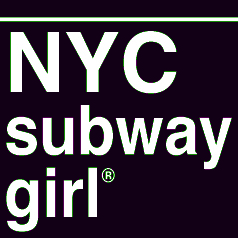With the recent arrest of NYC busker Andrew Kalleen and the questions people have been asking me, I thought I'd write about it to clarify some things. I do not have a permit, I don't need one to be able to perform in the subway's and stations of NYC. I do belong to a program that schedules my performances at locations within stations. It's called Music Under NY and short name is MTA Music. But that doesn't mean having a schedule with MTA Music means I can't play elsewhere within the stations. It is NOT a permit.
There are 2 very important rules: 1- you can't impede traffic and 2- you can't amplify. Andrew did neither. Andrew's impressive knowledge of Section 1050.6 of the MTA rules of conduct knew his rights. The arresting officer even though he at first said he wasn't arresting Andrew but evicting him, had no legal reason to do so. He even read the section out loud and still didn't believe his own words. Thankfully it was filmed in it's entirety without any edits and it's clear in the 7+ min clip, how much courage Andrew had to continue to sing while having his guitar stripped from him and then be taken away in handcuffs.
As friend and writer Don Hubbard noted "Cathy Grier, we need you out there supporting buskers being arrested in Brooklyn! The poor guy's only crime was that he was playing Pink Floyd."
Here's the clip of Andrew's performance and arrest, you be the judge:
Check out my section For Buskers which has lots of information regarding busker rights.
Here is the section that every busker should know about:
Use Of The Transit System of MTA rules
Rules of Conduct Section 1050.6 (c).
(bold highlights are mine for emphasis)
(c) Except as expressly permitted in this subdivision, no person shall engage in any nontransit uses upon any facility or conveyance. Nontransit uses are noncommercial activities that are not directly related to the use of a facility or conveyance for transportation. The following nontransit uses are permitted by the Authority, provided they do not impede transit activities and they are conducted in accordance with these rules: public speaking; campaigning; leafletting or distribution of written noncommercial materials; activities intended to encourage and facilitate voter registration; artistic performances, including the acceptance of donations; solicitation for religious or political causes; solicitation for charities that: (1) have been licensed for any public solicitation within the preceding 12 months by the Commissioner of Social Services of the City of New York under section 21-111 of the Administrative Code of the City of New York or any successor provision; (2) are duly registered as charitable organizations with the Attorney General of New York under section 172 of the New York Executive Law or any successor provision; or, (3) are exempt from Federal income tax under section 501(c)(3) of the United States Internal Revenue Code or any successor provision. Solicitors for such charities shall provide, upon request, evidence that such charity meets one of the preceding qualifications.
Follow this link scroll to read entire 1050.6 and 1050.7
MTA Rules of performing Link from NY.GOV website
Entertaining on the Subway
The Rule which regulates the provision of entertainment on the subway is Section 1050.6 (c). Some features of this Rule are listed below. This description should NOT be considered a full explanation of all aspects of this rule, but only a brief and general summary. All persons who are interested in performing on the subway and who wish to avoid violating the law are strongly advised to contact New York City Transit beforehand to get a copy of the Rules of Conduct, as well as a more complete explanation of their requirements.
Some general rules for performing on the subway include (but are not limited to) the following:
- Artistic performances on transit facilities are permitted, but only if they are in accordance with the following rules AND if they do not impede transit activities, including access to the trains and stations and the free movement of passengers. All artistic performances which violate these rules OR which impede transit activities are forbidden.
articles 2-13 read on for the rest of the rules of conduct
